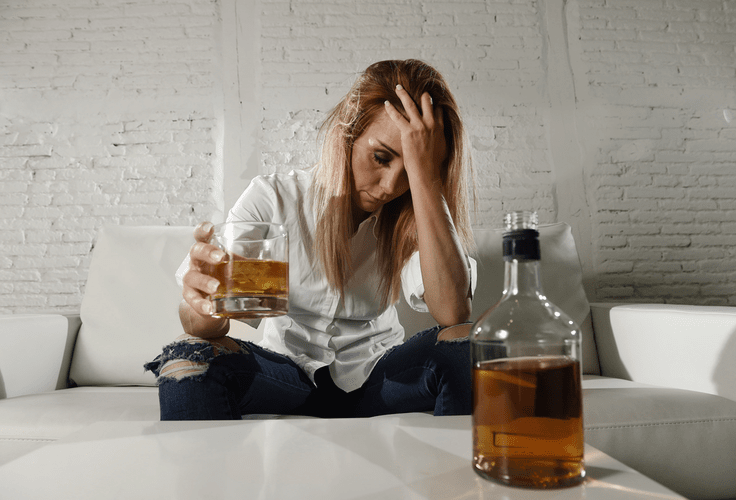Getting back on track quickly after a lapse is the real measure of success. Relapse is emotionally painful for those in recovery and their families. Nevertheless, the first and most important thing to know is that all hope is not lost. Relapse triggers a sense of failure, shame, https://ecosoberhouse.com/article/how-to-stop-alcohol-cravings/ and a slew of other negative feelings. It’s fine to acknowledge them, but not to dwell on them, because they could hinder the most important action to take immediately—seeking help. Taking quick action can ensure that relapse is a part of recovery, not a detour from it.
- When people enter a substance abuse program, I often hear them say, “I want to never have to think about using again.” It can be frightening when they discover that they still have occasional cravings.
- Therefore, on the one hand, individuals expect that using will continue to be fun, and, on the other hand, they expect that not using will be uncomfortable.
- An emotional relapse may occur when a person remembers their last relapse, does not want to repeat it, and is not thinking about using.
- But as part of their all-or-nothing thinking, while they were working, they felt they didn’t deserve a reward until the job was done.
- Most alcohol and drug treatment centers educate clients on relapse prevention techniques and help clients learn them in order to maintain recovery and achieve short- and long-term goals.
Recovery from addiction requires significant changes in lifestyle and behavior, ranging from changing friend circles to developing new coping mechanisms. It involves discovering emotional relapse prevention vulnerabilities and addressing them. By definition, those who want to leave drug addiction behind must navigate new and unfamiliar paths and, often, burnish work and other life skills.
Grounding Techniques
Recovery is a developmental process and relapse is a risk before a person has acquired a suite of strategies for coping not just with cravings but life stresses and established new and rewarding daily routines. According to NIDA, addiction recidivism is a normal part of recovery. However, although recidivism is part of recovery, the NIDA cautions that it can be extremely dangerous, sometimes even deadly with some drugs. For the NIDA, relapse means the same way as when it occurs in other chronic medical illnesses. Drug relapse in addiction can result from triggers, ceasing medical treatment, or incompatible medications and treatment programs. Many people are embarrassed by their addiction, but having the disease of addiction is not shameful.
- Drug relapse in addiction can result from triggers, ceasing medical treatment, or incompatible medications and treatment programs.
- Alternatively, once a milestone is reached, individuals feel they have recovered enough that they can determine when and how to use safely.
- At some point after making a change, the demands of maintaining it seem to outweigh the benefits of the change.
- Individuals in this stage are often not planning to relapse so that they may be in denial of their risk of relapse.
- Such preventive techniques may include applying better stress management tools or not putting yourself in situations that may trigger cravings.
Also, the use of some medications (i.e., buprenorphine and methadone) require periodic drug screens to ensure the individual is not diverting the medication or using other substances of abuse. Lastly, even in the absence of explicit consequences for alcohol or drug use, knowing they may be subject to testing provides a measure of deterrence against relapses for some individuals. Positive social support is highly predictive of long-term abstinence rates across several addictive behaviours. Further, the more non-drinking friends a person with an AUD has, the better outcomes tend to be. Negative social support in the form of interpersonal conflict and social pressure to use substances has been related to an increased risk for relapse.
Leveraging Grounding Techniques
I find it helpful to encourage clients to compare their current behavior to behavior during past relapses and see if their self-care is worsening or improving. I have also included a link to a public service video on relapse prevention that contains many of the ideas in this article and that is freely available to individuals and institutions [5]. By the time most individuals seek help, they have already tried to quit on their own and they are looking for a better solution. This article offers a practical approach to relapse prevention that works well in both individual and group therapy. Contact a healthcare professional if you or someone you know suffers from a substance use disorder.

Motivational Interviewing provides a means of facilitating the change process7. Shiffman and colleagues describe stress coping where substance use is viewed as a coping response to life stress that can function to reduce negative affect or increase positive affect. Most often, a relapse prevention plan is a written document a person creates with their treatment team and shares with their support group. The plan offers a course of action for responding to triggers and cravings. This may vary from person to person and be influenced by things such as extent and length of use. Talking openly about a lapse or relapse with a care team can help you develop and strengthen your relapse prevention plan and identify how to get back on track with your recovery goals.
Marlatt’s Model of Relapse Prevention
One cognitive strategy is to recite a mantra selected and rehearsed in advance. A behavioral strategy is to call and engage in conversation with a friend or other member of your support network. Getting out of a high-risk situation is sometimes necessary for preserving recovery.

Determining what caused a prior relapse is vital in avoiding them in the future. As such, it is vital to have a plan for how to avoid relapse and what to do if it does happen to you. Self-efficacy refers to a person’s confidence in their own ability to achieve something. When a person’s self-efficacy is low, they may have a hard time believing in their ability to maintain sobriety. Get professional help from an online addiction and mental health counselor from BetterHelp. 3) Clients feel they are not learning anything new at self-help meetings and begin to go less frequently.








